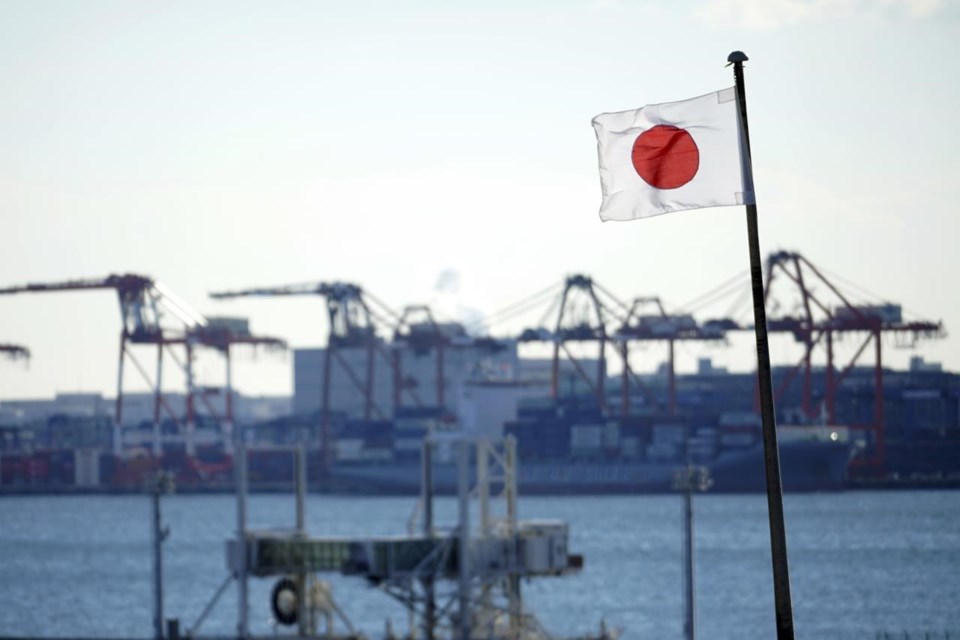TOKYO (AP) — Japan’s trade deficit in April grew nearly 8% from a year earlier as the weak yen boosted the value of imports, offsetting gains from a jump in exports, government data showed Wednesday.
Exports totaled 8.98 trillion yen ($57 billion), while imports totaled 9.4 trillion yen ($60 billion), both up 8% from the previous year, the Ministry of Finance said. The trade deficit for the month came out to 462.5 billion yen ($3 billion).
Shipments to the rest of Asia, the U.S. and Middle East were sharply higher, while exports to Europe were flat. Imports from the U.S. grew nearly 30% from a year earlier, and imports from the Middle East, mainly of oil and gas, jumped 15%.
Vehicle exports jumped 24% and exports of electrical machinery were up 16%. Imports of mechanical parts surged as demand climbed for auto parts and computer chips. Japan's auto production has been recovering after disruptions from the pandemic that affected supply chains worldwide.
Imports were also up sharply due to the U.S. dollar's persisting gains against the yen. The dollar has been trading at about 156 yen lately, up from 139 yen a year ago, at one point reaching 160 yen.
A weak yen makes Japan’s purchases from abroad more expensive, though it raises the value of overseas earnings converted into yen by big companies like Toyota Motor Corp.
Imports of oil and natural gas rose more than 23% in April from a year earlier, while imports of food and manufacturing inputs also climbed.
One factor behind the weakening yen is Japan’s low interest rates, with the benchmark still barely above zero, a policy the Bank of Japan has taken to keep a stagnant economy going and encourage lending.
The U.S. has raised interest rates to try to rein in inflation. The higher returns on dollar investments have pushed the value of the greenback higher against other currencies.
___
Yuri Kageyama is on X: https://twitter.com/yurikageyama
Yuri Kageyama, The Associated Press



